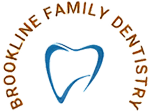Does Alcohol Consumption Affect Dental Treatment?
Yes, alcohol consumption can have an impact on dental treatment in several ways.
Dry Mouth: Alcohol is a diuretic, which means it can lead to increased urination and dehydration. Dehydration can result in dry mouth (xerostomia), a condition in which the mouth does not produce enough saliva to keep it moist. Saliva is important for maintaining oral health because it helps to wash away food particles, neutralize acids, and fight bacteria. Dry mouth can increase the risk of tooth decay and gum disease.
Increased Risk of Gum Disease: Alcohol can weaken the immune system, making it harder for your body to fight off infections, including gum disease. Heavy alcohol consumption can also lead to poor oral hygiene habits, further increasing the risk of gum disease.
Tooth Decay: Many alcoholic beverages contain sugars and acids that can erode tooth enamel and contribute to tooth decay. Additionally, alcohol can lead to poor dietary choices, such as consuming sugary mixers or snacks, which can increase the risk of cavities.
Interactions with Medications: If you’re undergoing dental treatment and taking medications, alcohol can interact negatively with some drugs, reducing their effectiveness or causing adverse reactions. It’s important to inform us about any medications you’re taking and your alcohol consumption habits to ensure safe and effective treatment.
Healing and Recovery: Alcohol can impair the body’s ability to heal and recover after dental procedures, such as extractions or surgeries. It can interfere with blood clot formation and increase the risk of bleeding and complications.
Oral Cancer Risk: Chronic alcohol consumption is a risk factor for oral cancer. During routine dental exams we check for signs of oral cancer, and heavy alcohol use can make you more susceptible to this condition.
Anesthesia and Sedation: Alcohol can interact with anesthesia and sedation medications, potentially affecting their effectiveness and safety during dental procedures.
In summary, alcohol consumption can negatively impact dental treatment by increasing the risk of oral health issues, interfering with medications, impairing healing, and complicating anesthesia. If you consume alcohol, it’s important to communicate openly with our team about your habits so they can provide the best possible care and advice for maintaining your oral health. Reducing or moderating alcohol consumption can also have a positive impact on your dental health.


